Introduction
Hello everyone, I'm your home living expert. Today I want to share an incredibly practical topic with you — how to keep your house in optimal condition. To be honest, I've seen too many young people who, after buying or renting a house, have no idea how to maintain it, often waiting until facilities break down before scrambling to find repairs. This approach not only costs money but also affects your mood. In fact, as long as you master the correct maintenance methods, you can keep your house in good condition and feel at ease using it.
As a "veteran" who has gone through multiple renovations and maintenance experiences, I deeply understand the importance of preventive maintenance. For example, my neighbor Xiao Wang is a typical example of reactive maintenance. His air conditioner developed serious odors and reduced cooling efficiency after two years of never being cleaned, ultimately forcing him to spend big money on professional deep cleaning. Meanwhile, my air conditioner has been running like new for over five years, simply because I developed good regular maintenance habits.
Safety First
What's most important when it comes to home maintenance? That's right, safety. This issue really can't be taken lightly. I experienced a close call once. Last winter, while cooking hotpot in the kitchen, I accidentally let the oil temperature get too high and it nearly caught fire. Fortunately, the smoke detector alarmed in time, allowing me to quickly handle this dangerous situation. Since then, I've paid even more attention to checking home safety equipment.
Now I regularly set aside half an hour each month to carefully inspect the home's safety equipment. First is the smoke detector, which I test with special testing spray to check its sensitivity; then the carbon monoxide alarm, pressing the test button each time to confirm normal operation; finally checking the emergency lighting in each room. These seemingly simple checks help me sleep especially soundly.
Beyond these, I pay special attention to electrical safety. All outlets in the house are installed with ground fault circuit interrupters, and all wiring uses flame-retardant materials. Every quarter I check all outlets for heating or looseness. Once, I discovered slight heating in a living room outlet and immediately called an electrician to check. It turned out to be poor contact, and replacing it in time avoided a potential accident.
Oh, speaking of safety equipment, many people may not know that smoke detectors and carbon monoxide alarms have service lives. Generally, smoke detectors should be replaced every ten years, while carbon monoxide alarms should be replaced every five to seven years. I've also specially prepared several portable fire extinguishers, placed in the kitchen, living room and bedroom, and check them annually for expiration.
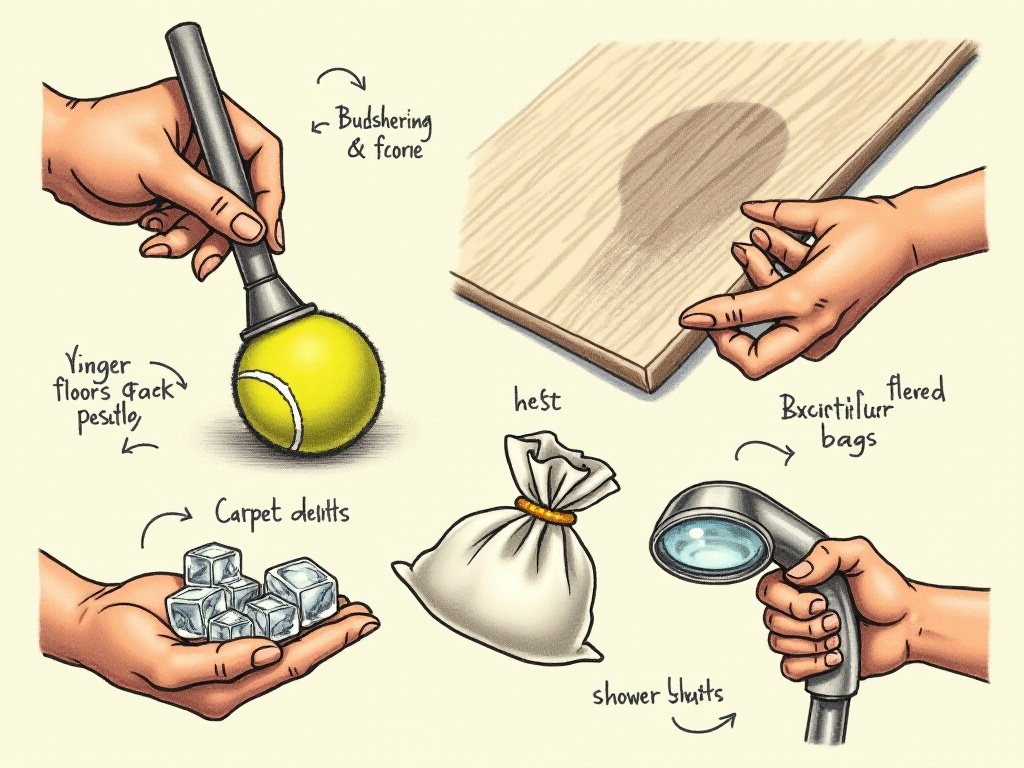
System Inspection
HVAC system maintenance is the aspect most easily overlooked by young people. You might think that as long as the air conditioning cools and heats normally it's fine, but this system actually needs very detailed maintenance. I've developed a complete inspection process that I execute monthly.
First is cleaning and replacing air filters. Many people may not know that if air conditioner filters aren't cleaned promptly, they not only affect cooling efficiency but also breed bacteria and mold. My approach is to clean the filter with a vacuum cleaner every two weeks, thoroughly wash with water every three months, and replace every six months. Since starting this practice, the air quality at home has noticeably improved, and the air conditioner's power consumption has decreased significantly.
Second is regularly checking the refrigerant pipes. This may need professional help - I usually have an AC technician check once before summer each year. Key inspection points include checking for leaks in the pipes, whether the insulation layer is intact, and whether the outdoor unit needs cleaning. Last year through such an inspection, I discovered a tiny refrigerant leak point and repaired it in time to avoid bigger losses.
Central air conditioning maintenance is especially crucial. I have central air conditioning and get professional maintenance twice a year. Maintenance includes cleaning fan coils, checking drainage systems, cleaning air ducts, etc. Although each maintenance costs quite a bit, compared to extending the AC's lifespan and saving on electricity bills, this investment is very worthwhile.
Fresh air systems can't be ignored either, especially now that many young people have installed them. I check the primary and HEPA filters of the fresh air machine monthly, replace the primary filter every three months, and the HEPA filter every six months. Although filters aren't cheap, this investment is worth it for indoor air quality.
Seasonal Care
Spring and Fall Deep Cleaning
The spring and fall deep cleanings are my most valued home maintenance work. This isn't just simple cleaning, but comprehensive inspection and maintenance of various house systems.
First is checking and cleaning the drainage system. I remember last fall, my friend who neglected maintenance paid a big price. His drainage gutters were full of leaves, causing rainwater to backflow into the living room during a heavy rain, damaging not only the hardwood floors but also some furniture, with repair costs reaching tens of thousands. So now I pay special attention to this point, thoroughly cleaning gutters and downspouts every season change.
When cleaning, I wear waterproof gloves and use special pipe cleaning tools to clear every drain. Sometimes when encountering difficult blockages, I use a high-pressure water gun to flush, which works especially well. After cleaning, I also check drain pipe joints for cracks or looseness, fixing any problems promptly.
External wall inspection is also an important part of spring and fall deep cleaning. I carefully check for wall cracks, peeling, or water seepage marks. During last spring's inspection, I found a small crack in the balcony wall and immediately had it repaired, avoiding greater losses from rain penetration.
Window and door inspection can't be missed either. I check all window seals for integrity, track smoothness, and oil all door hinges. This not only maintains door and window lifespan but also improves room insulation.
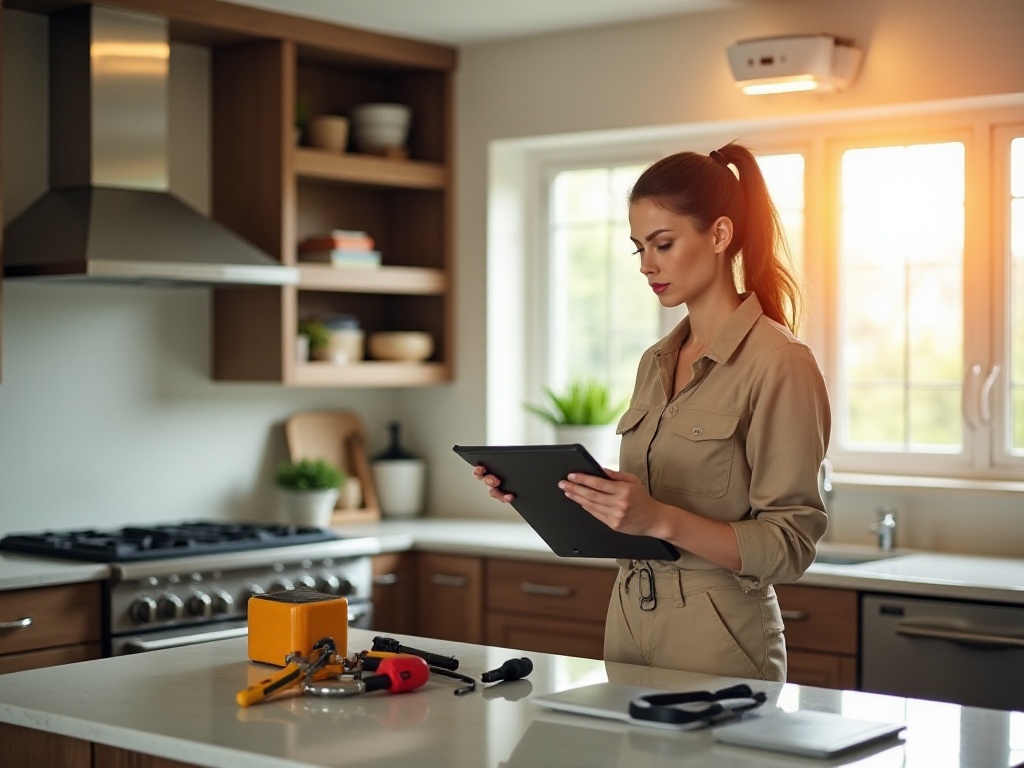
Winter Protection
Winter home maintenance work mainly focuses on cold and freeze prevention. I live in the north where winters are especially cold, and if protection isn't taken seriously, various problems can easily arise.
First is preventing ice dams. Many people might not know what ice dams are - they're ice blocks formed when roof snow melts and refreezes at the eaves. These ice blocks not only damage the roof but can cause water backflow. My approach is to promptly clear roof snow after snowfall, especially at the eaves. If ice dams have already formed, I use snow-melting agents to treat them - never use an iron shovel to scrape, as that would damage the roof.
Second is pipe freeze prevention. Before each winter, I check outdoor pipes and garden irrigation systems, ensuring they're completely drained and shut off. For pipes prone to freezing, I wrap them with insulation cotton, and some critical areas get heat tape installed. Remember last year a neighbor didn't take freeze prevention measures, and when their pipes burst, the entire basement was flooded.
Heating system maintenance is also important. Before winter I have professionals check the heating system, including cleaning radiators, checking pipes, and adjusting thermostatic valves. Air in radiators needs to be promptly released, or it will affect heating efficiency. Additionally, I keep a thermometer-hygrometer to monitor indoor temperature and humidity, maintaining a suitable indoor environment.
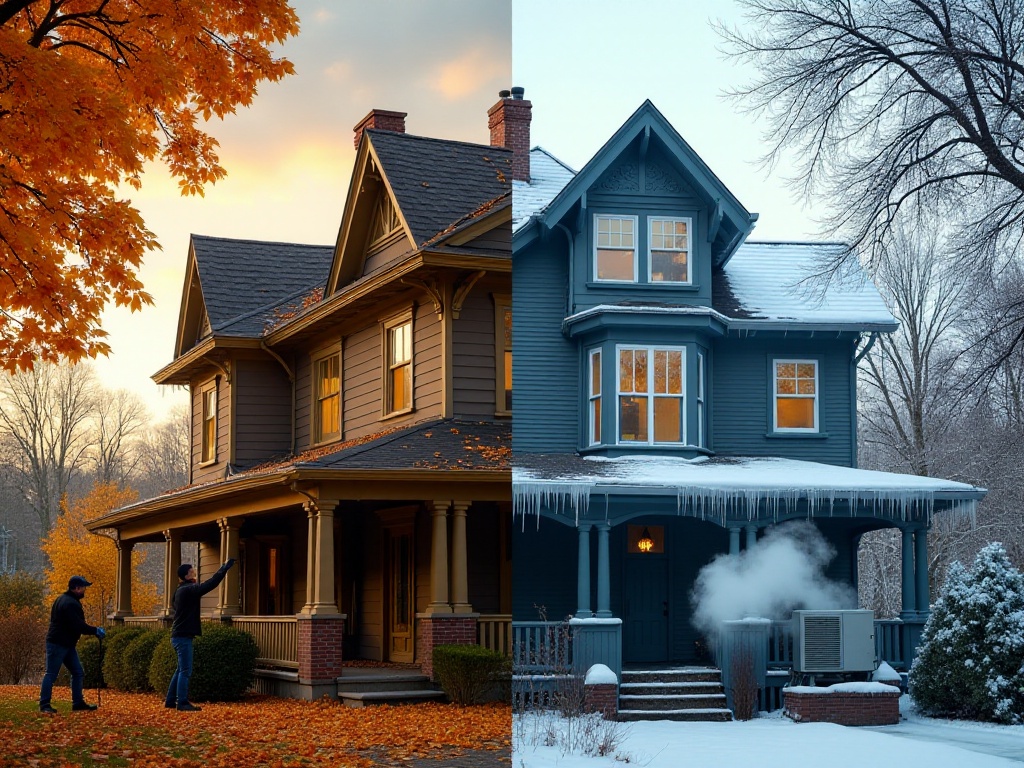
Indoor Environment
Speaking of indoor environment, there's much to learn. Modern people spend an average of 90% of their time indoors, so indoor environmental quality directly affects our health.
First, let's talk about air quality. Many people might not know that indoor pollutant concentrations are often 2-5 times higher than outdoors. These pollutants include formaldehyde, benzene compounds, bacteria, etc., which can harm health with long-term exposure. I use a "multi-pronged" approach: first is maintaining regular ventilation, opening windows for 15-20 minutes morning, noon, and evening for thorough air circulation; second is using air purifiers - I chose models with HEPA filters, replacing filters every three months; finally, placing some formaldehyde-absorbing plants indoors, like pothos and snake plants.
Humidity control is also very important. I maintain 45%-60% relative humidity year-round, which is most suitable for human health and prevents furniture deformation and mold growth. In winter when heating makes the air especially dry, I use humidifiers to adjust humidity. However, humidifiers need frequent cleaning to prevent bacterial growth.
Lighting is also an important component of the indoor environment. I pay special attention to natural lighting in each room, and curtain selection is also particular. I try to use natural light during the day - it's not only energy-efficient but good for health. However, strong summer sunlight needs appropriate shading - I installed sun shades on severely western-exposed windows, both blocking sun and saving electricity.
Indoor temperature adjustment also requires attention. Different areas of my home have separate temperature controls - the living room maintains 24 degrees, bedroom 22 degrees, both comfortable and energy-efficient. When using air conditioning in summer, I'm careful to keep indoor-outdoor temperature differences within 5-8 degrees, which is best for health.
Practical Tips
Floor Maintenance
Speaking of floor maintenance, this is my specialty. Different floor materials need different maintenance methods, let me explain in detail.
Hardwood floor maintenance is most particular. First is daily cleaning - I use special hardwood floor cleaner, never using an overly wet mop. Weekly thorough cleaning with a vacuum cleaner, paying special attention to dust in crevices. Every three months, I use professional hardwood floor wax for maintenance, which maintains the floor's shine and provides water and stain resistance.
Although engineered flooring is more durable than hardwood, it also needs careful maintenance. My secret is controlling indoor humidity, as engineered flooring is especially sensitive to moisture. For cleaning, a slightly damp mop is enough - never wash directly with water. If scratches appear, they can be treated with special repair wax crayons.
For carpets, I recently discovered a particularly useful method: using ice cubes to remove dents. Specifically, place ice cubes on dented areas and let them naturally melt - carpet fibers will slowly return to their original state. I've successfully "rescued" several furniture-dented carpets with this method.
Additionally, daily carpet maintenance is important. I thoroughly vacuum weekly and have professional deep cleaning every six months. If drinks accidentally spill on the carpet, immediately absorb with dry towels, then treat with professional carpet cleaner to avoid stains.
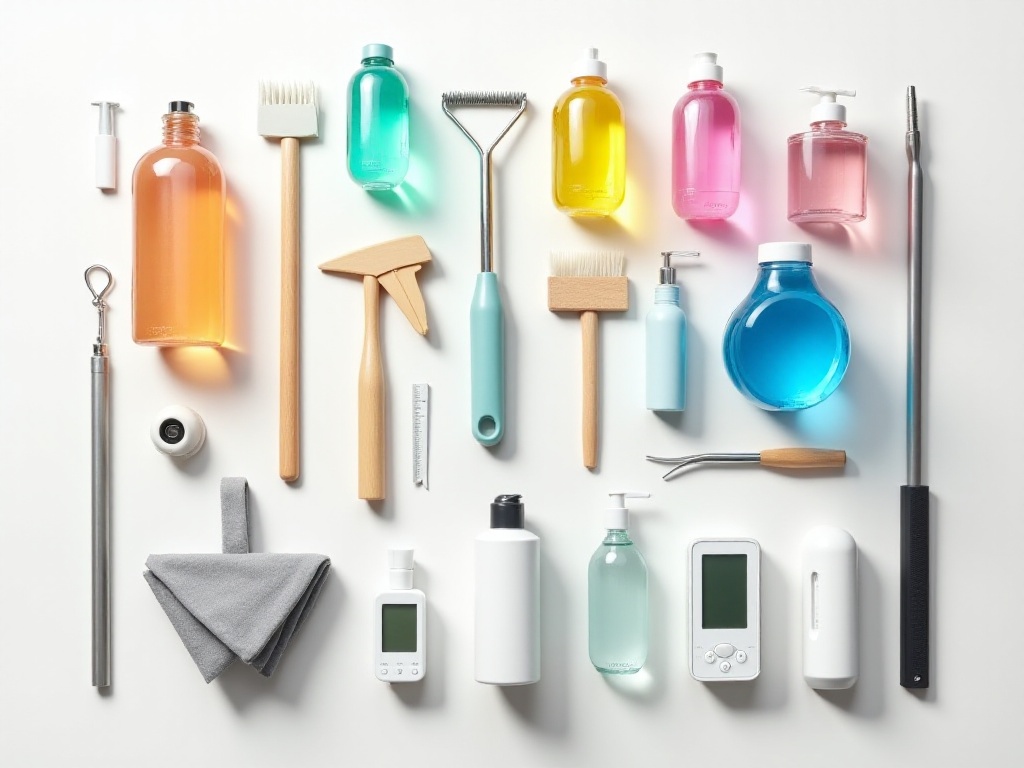
Pipe Maintenance
Pipe maintenance is a technical job, and I've summarized an effective method. First is preventive maintenance - monthly flushing drains with a hot water and white vinegar mixture. Specifically, first pour in half a cup of baking soda, then half a cup of white vinegar, wait for foam to subside before flushing with hot water. This method is not only environmentally friendly but effectively prevents pipe blockage.
Kitchen grease pipes need special attention. I installed a grease trap under the sink, cleaning it weekly. Range hood ducts also need regular cleaning - I generally clean every two months to prevent fire hazards from grease buildup.
Toilet maintenance is also important. I clean weekly with special toilet cleaner, paying particular attention to limescale at flush edges. If toilet flush strength decreases, components in the tank likely need replacement. I usually have professional plumbers handle this, as DIY attempts can easily cause damage.
Finally, let's talk about water heater maintenance. I use a gas water heater and have professionals check and clean it annually. Especially limescale removal - if not handled promptly, it not only affects water heater efficiency but shortens lifespan. Electric water heaters also need regular water drainage and descaling to extend heating element life.
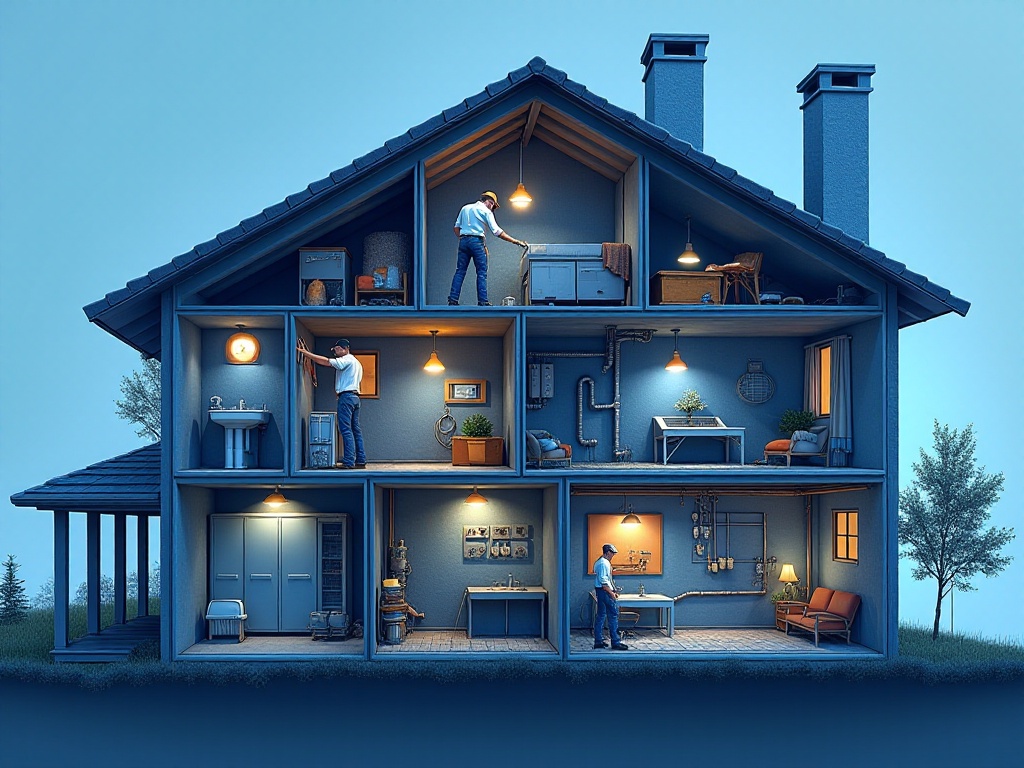
Concluding Thoughts
Through this detailed sharing, you should have gained a deeper understanding of home maintenance. Actually, maintaining a house isn't difficult - the key is developing good habits and regular inspection and maintenance. I suggest everyone create a maintenance schedule, recording daily, weekly, and monthly tasks for planned execution.
Remember, a regularly maintained home not only saves you substantial repair costs but provides a comfortable and safe living environment. Home is our life's harbor, worthy of our careful protection. Let's act together to give our homes better care.
I hope these experiences help everyone. If you have any unique home maintenance insights, welcome to share them in the comments. Let's create cozy, comfortable homes together!


